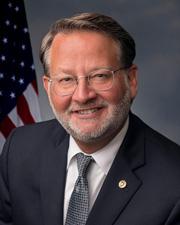0
0
0
Protecting Investments in Our Ports Act
10/4/2024, 2:47 PM
Summary of Bill S 5064
Bill 118 s 5064, also known as the Protecting Investments in Our Ports Act, is a piece of legislation currently being considered by the US Congress. The main purpose of this bill is to ensure that investments in American ports are protected and secure.
The bill aims to address the issue of potential threats to the security and stability of US ports, which are crucial for the country's economy and national security. It seeks to enhance the security measures in place at ports and ensure that investments made in these facilities are safeguarded.
One of the key provisions of the Protecting Investments in Our Ports Act is the establishment of a comprehensive security framework for ports, which includes measures to prevent and respond to security threats. This framework would involve collaboration between federal, state, and local authorities, as well as private sector stakeholders. Additionally, the bill includes provisions to enhance the screening and vetting of individuals and entities involved in port operations, in order to prevent any potential security risks. It also aims to improve information sharing and coordination among relevant agencies to better address security challenges at ports. Overall, the Protecting Investments in Our Ports Act is aimed at ensuring the continued security and stability of American ports, which are vital for the country's economic prosperity and national security. It seeks to strengthen security measures, enhance collaboration between stakeholders, and protect investments in these critical infrastructure facilities.
The bill aims to address the issue of potential threats to the security and stability of US ports, which are crucial for the country's economy and national security. It seeks to enhance the security measures in place at ports and ensure that investments made in these facilities are safeguarded.
One of the key provisions of the Protecting Investments in Our Ports Act is the establishment of a comprehensive security framework for ports, which includes measures to prevent and respond to security threats. This framework would involve collaboration between federal, state, and local authorities, as well as private sector stakeholders. Additionally, the bill includes provisions to enhance the screening and vetting of individuals and entities involved in port operations, in order to prevent any potential security risks. It also aims to improve information sharing and coordination among relevant agencies to better address security challenges at ports. Overall, the Protecting Investments in Our Ports Act is aimed at ensuring the continued security and stability of American ports, which are vital for the country's economic prosperity and national security. It seeks to strengthen security measures, enhance collaboration between stakeholders, and protect investments in these critical infrastructure facilities.
Read the Full Bill
Current Status of Bill S 5064
Bill S 5064 is currently in the status of Bill Introduced since September 17, 2024. Bill S 5064 was introduced during Congress 118 and was introduced to the Senate on September 17, 2024. Bill S 5064's most recent activity was Read twice and referred to the Committee on Commerce, Science, and Transportation. as of September 17, 2024
Bipartisan Support of Bill S 5064
Total Number of Sponsors
1Democrat Sponsors
0Republican Sponsors
1Unaffiliated Sponsors
0Total Number of Cosponsors
2Democrat Cosponsors
2Republican Cosponsors
0Unaffiliated Cosponsors
0Policy Area and Potential Impact of Bill S 5064
Primary Policy Focus
Science, Technology, CommunicationsAlternate Title(s) of Bill S 5064
Protecting Investments in Our Ports Act
Protecting Investments in Our Ports Act
A bill to amend title 46, United States Code, to require applicants for grants that propose to use digital infrastructure or a software component to certify the applicant has an approved security plan that addresses the cybersecurity risks of such digital infrastructure or software, and for other purposes.
Comments
Sponsors and Cosponsors of S 5064
Latest Bills
Holocaust Expropriated Art Recovery Act of 2025
Bill S 1884December 12, 2025
Enduring Justice for Victims of Trafficking Act
Bill S 2584December 12, 2025
Increasing Investor Opportunities Act
Bill HR 3383December 12, 2025
Great Lakes Fishery Research Reauthorization Act
Bill S 2878December 12, 2025
Electric Supply Chain Act
Bill HR 3638December 12, 2025
State Planning for Reliability and Affordability Act
Bill HR 3628December 12, 2025
A joint resolution providing for congressional disapproval under chapter 8 of title 5, United States Code, of the rule submitted by the Office of the Secretary of the Department of Health and Human Services relating to "Policy on Adhering to the Text of the Administrative Procedure Act".
Bill SJRES 82December 12, 2025
Providing for consideration of the bill (H.R. 2550) to nullify the Executive Order relating to Exclusions from Federal Labor-Management Relations Programs, and for other purposes.
Bill HRES 432December 12, 2025
Mining Regulatory Clarity Act
Bill HR 1366December 12, 2025
Legacy Mine Cleanup Act of 2025
Bill S 2741December 12, 2025
Protecting Investments in Our Ports Act
Bill HR 9642October 4, 2024

